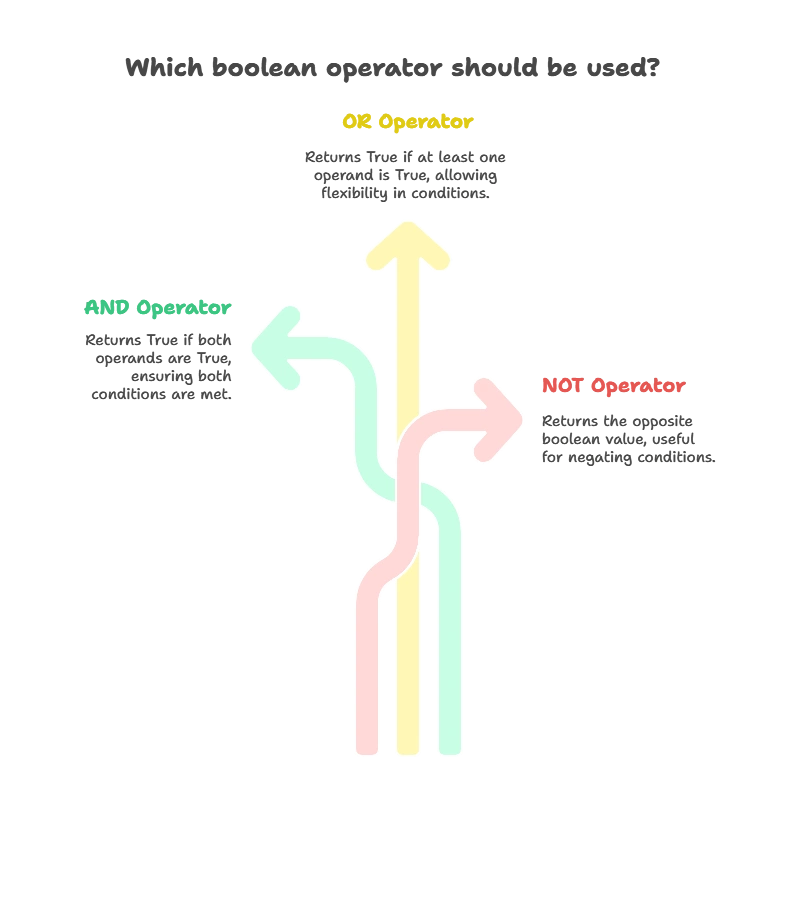Boolean Logic in Python
Boolean logic is a fundamental concept in programming, including Python. It deals with expressions that evaluate to either True or False. In this topic, we'll explore boolean logic from its basic principles to more advanced techniques, using examples to illustrate each concept.
Basics of Boolean Logic
Understanding Boolean Data Type
In Python, the boolean data type represents two possible values: True and False. These values are used to indicate the truthfulness or falseness of a statement or expression.
Boolean Operators
Python provides several boolean operators to perform logical operations on boolean values. The main boolean operators are:
and: Returns True if both operands are True.or: Returns True if at least one of the operands is True.not: Returns the opposite boolean value of the operand.

Examples of Boolean Logic
Using Boolean Operators
Let’s see some examples of boolean expressions using boolean operators:
# Example of boolean expressions
x = 5
y = 10
# Using 'and' operator
print(x > 0 and y < 20) # True
# Using 'or' operator
print(x < 0 or y < 20) # True
# Using 'not' operator
print(not x < 0) # True
Comparing Values
Boolean logic is often used in comparing values or variables. We can use comparison operators such as ==, !=, <, >, <=, >= to create boolean expressions.
# Example of comparison operators
a = 5
b = 10
print(a == b) # False
print(a != b) # True
print(a < b) # True
Advanced Boolean Techniques
Short-circuit Evaluation
Python uses short-circuit evaluation for boolean expressions involving and and or operators. This means that the second operand is only evaluated if necessary.
# Example of short-circuit evaluation
x = 5
y = 10
print(x > 0 and y < 20) # True
print(x < 0 and y < 20) # False
Chained Comparisons
Python allows chaining comparison operators for more concise boolean expressions.
# Example of chained comparisons
a = 5
print(0 < a < 10) # True
print(0 > a < 10) # False
Boolean logic is a fundamental aspect of Python programming, enabling you to make decisions and control the flow of your programs based on conditions. By understanding boolean data type, operators, comparison techniques, and advanced boolean techniques like short-circuit evaluation and chained comparisons, you can write more expressive and efficient code. Remember to use boolean logic judiciously to create clear and concise programs. Happy Coding!❤️
